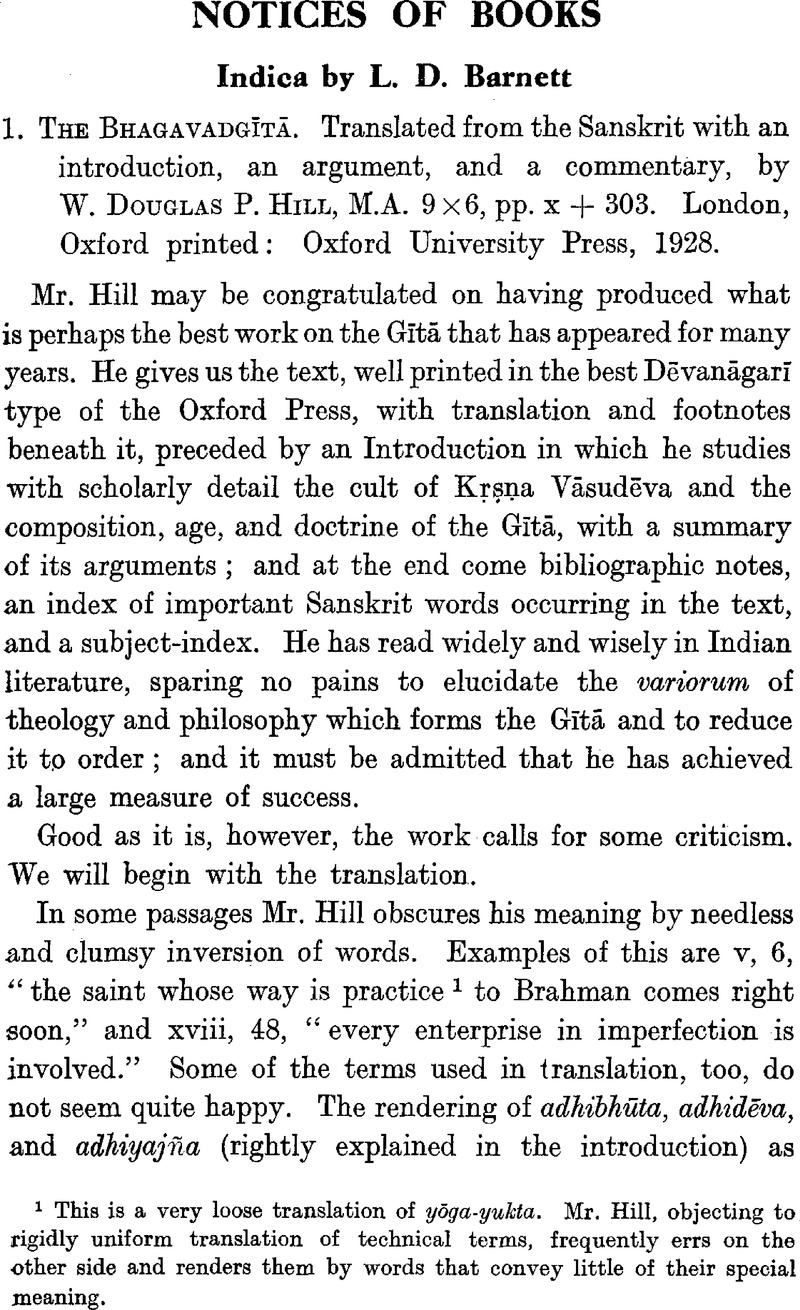No CrossRef data available.
Article contents
Indica by L. D. Barnett - 1.The Bhagavadgītā. Translated from the Sanskrit with an introduction, an argument, and a commentary, by W. Douglas P. Hill M.A. 9 × 6, pp. x + 303. London, Oxford printed: Oxford University Press, 1928
Review products
Published online by Cambridge University Press: 15 March 2011
Abstract

- Type
- Notices of Books
- Information
- Copyright
- Copyright © The Royal Asiatic Society 1929
References
page 125 note 1 This is a very loose translation of yōga-yukta. Mr. Hill, objecting to rigidly uniform translation of technical terms, frequently errs on the other side and renders them by words that convey little of their special meaning.
page 126 note 1 Cf. Śat. Br. III. ii. 2, 7, Agnir brahmâgnir yajñaḥ),, etc.
page 128 note 1 Of course, I abandoned long ago Bhandarkar's view that Kṛṣṇa was originally distinct from Vāsudēva.
page 129 note 1 Kṛṣṇa is styled Viṣṇu in xi, 24, 30, and the equivalent Hari, xi, 9, xviii, 77, passages where the supreme nature of the deity is strongly stressed. Mr. Hill's attempts to dodge the consequences of these facts on p. 25 are unintelligible to me.
page 129 note 2 Note especially iv, 23 ff. The same idea, transfigured by devotional feeling, is expressed in the carama ślōka, xviii, 66, “surrendering all duties [i.e. devoting to God the performance of all duties prescribed for man, and renouncing all claim to reward for performing them], come to me alone for protection,” etc.


